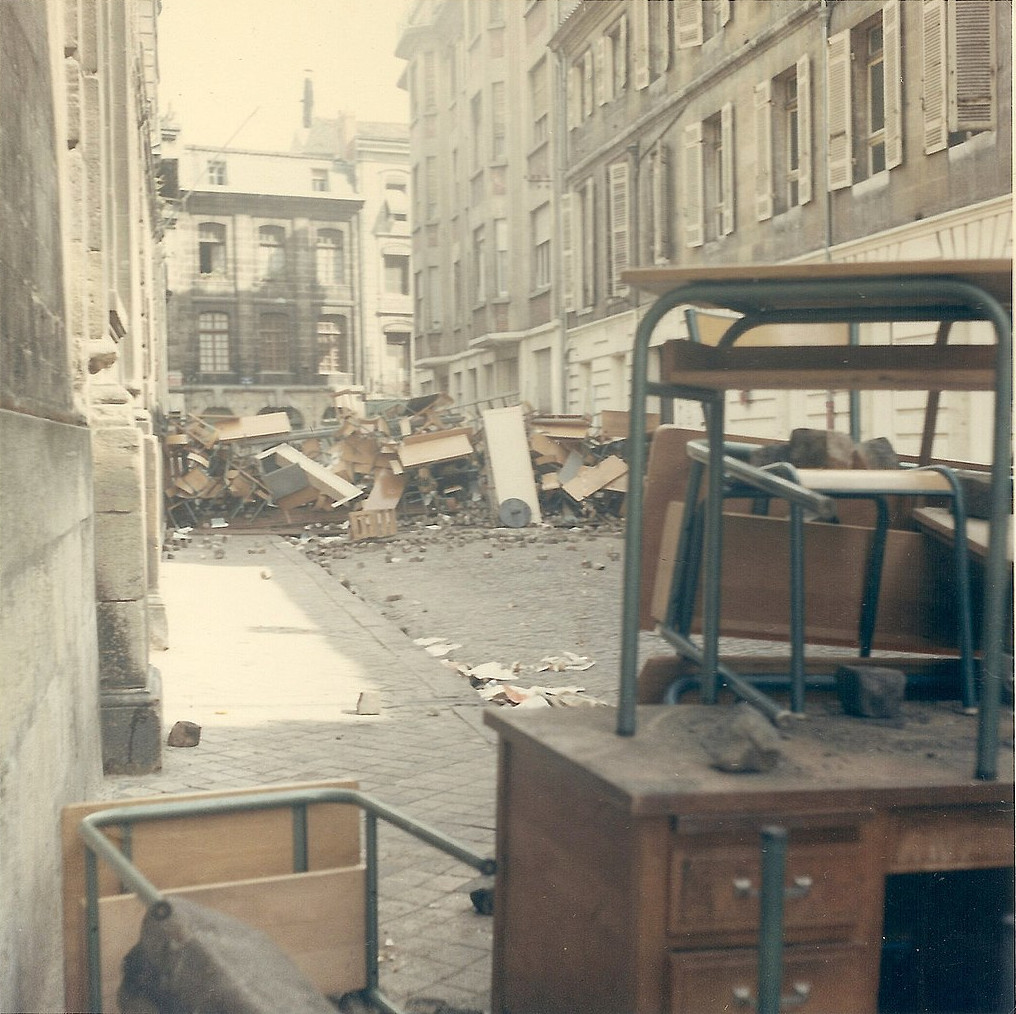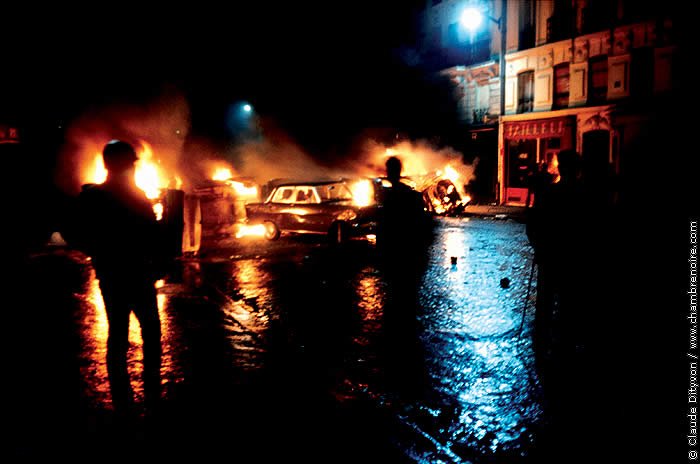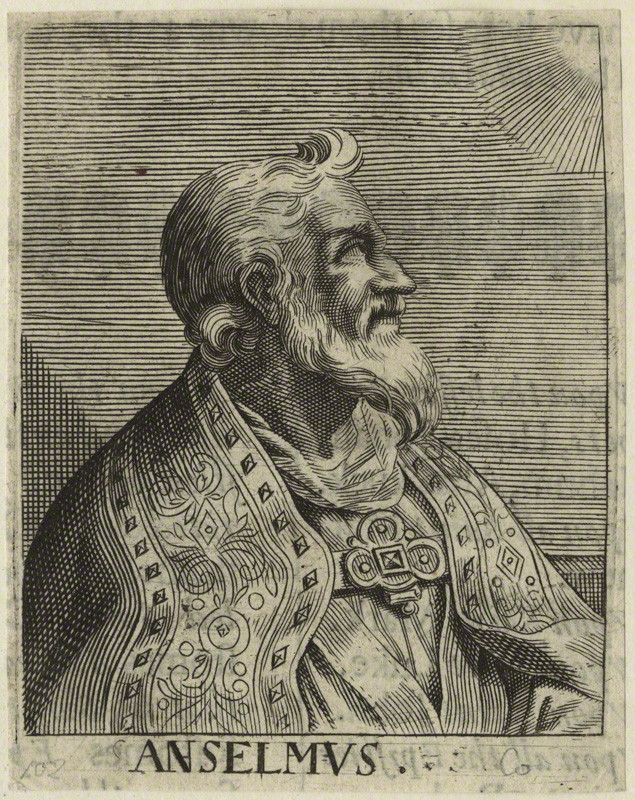‘Demand the impossible!’, anarchism’s ontological argument?

The prefigurative politics of the ‘68 student movement
What is direct action? What differentiates it from civil disobedience, conscientious objection, and other forms of activism? Benjamin Franks argues that, while all these actions may be grassroots, only direct action is prefigurative. Only direct action is a way of exemplifying the kind of society one strives for, by performing the action itself.1 But what does it mean to prefigure something?
As examples of direct action, Franks mentions sit-ins, squatting, occupying public spaces, violence and vandalisms most clearly when undertaken against oppressors (though Franks also counts certain kinds of racist terrorism as a form of right-wing direct action, p. 28-29).2 What makes these potentially forms of direct action, is that people may do these things in order to instantiate the ideal they are striving for (Franks 2003, 18-19).
I want to focus here, on a unique kind of direct action; those that are a form of speech. Franks argues that political slogans can also be forms of direct action. This is so, if they express an ideal linguistic meaning that cannot be captured by our ordinary language. By doing this, certain political slogans have the power to make us see the world differently.
[…] the manipulation of everyday language, such as the juxtaposition of previously unconnected words (‘demand the impossible’, ‘senseless acts of beauty’, ‘irrational act of kindness’) demonstrate[s] the ideological hold of the dominant culture and can also be classed as direct action. (p. 19)
Let’s take the slogan “Soyez réalistes, demandez l’impossible” (“Be realists, demand the impossible”), invented by the protestors of May 1968. According to Franks, the slogan illustrates how a creative slogan can have a political effect. But is it merely because this slogan shows us that capitalism has infected our language, that it is therefore a direct action? For example, you could also recite a long and boring Marxist analysis of language to prove that capitalism limits our speech. Is that a way of prefiguring an alternative world? If not, what makes the slogan prefigurative in a way that a lecture on Marx would not be?
Heideggerian language
One obvious parallel of the slogan can be found in poetry. Poetic interventions in our language have the power to change the way we understand ourselves and the world. Because of this, philosophers have argued that poetry is the art that affects our world most fundamentally. Because it is through poetic constructions of meaning that we first learn to make sense of our shared world. And this has an impact on what we consider to be normal within that world. In this way, poetry is also a political art. The go-to reference in this respect is Martin Heidegger, specifically his The origin of the work of art ([1936] 1993).
Briefly put, Heidegger sees artworks as happenings of truth. Artworks are events that bring about (new) truths. So, in trying to understand artworks, we begin to interpret our own worlds differently at the same time. And if that happens, what we are inclined to think of as the truth about ourselves has come about because of the artwork. An artwork, Heidegger says, “gives to things their look and to [people] their outlook on themselves.”3 It does this by (re-)framing the way we make sense of the world. For example, by telling an original story, or using unique metaphors, figures of speech, etc., art allows us to think of ourselves differently. In other words, Heidegger thinks about art in linguistic terms of meaning and truth. For this reason, he goes on to argue that all art is poetic in nature, even non-verbal forms like architecture and sculpture.
It is due to art’s poetic essence that, in the midst of beings, art breaks open an open place, in whose openness everything is other than usual. (Heidegger [1936] 1993, p. 197)
On the basis of this quote, it seems, the slogan “Be realists, demand the impossible!” also qualifies as poetic. A happening of truth, the slogan (or, we might genuinely say: the line of poetry) makes us look at the world in a different way. Because of it we can see that life under capitalism is unrealistically demanding. And the people who demand the impossible are simply the ones being realist. True realism can be compatible with, indeed it may even require, demanding the impossible.4

Note however, that only sentences later from the quote above, Heidegger walks back on his claim that poetry subverts the status quo:
Poetry, however, is not an aimless imagining of whimsicalities and not a flight of mere notions and fancies into the realm of the unreal. […] If we fix our vision on the essence of the work and its connection with the happening of the truth of beings, it becomes questionable whether the essence of poetry […] can be adequately thought of in terms of the power of the imagination. (Heidegger [1936] 1993, p. 197)
Heidegger here explicitly rejects the idea that poetry lets us imagine a future that is still “unreal”. Besides that, he also rejects what was going to become another famous slogan of the ‘68 protestors: “L’imagination au pouvoir!” (“Power to the imagination!”).
For Heidegger, it is true that art, and poetry especially, opens up a heterogeneous space within the status quo. But the point of this space is not to change the status quo, but rather articulate a truth that is already somehow present within it. Poetry according to Heidegger, is not so much pre-figurative (in the sense of exemplifying a future utopia). Rather, it simply expresses an essential truth about ourselves that is already the case.
Why would Heidegger think that? One reason is that it is hard to see how we could understand a poetic truth if it did not, somehow, articulate what is already the case about us. What could be true about a statement which is not the case about us, but which rather aims to say something about our potential future selves? Is there anything about that orientation to the future that sets it apart from sheer fantasising? I believe we can and must push back on Heidegger’s reasoning here. But to do this properly, we need to find a better way of thinking about prefiguration; one which doesn’t have us flee into sheer fantasy. The task, as we shall see shortly, leads us to an aporia and two ways of dealing with it.
An aporia, and a religious solution
A slogan like “Be realists, demand the impossible!” derives its sense from a heterogeneous space opened up within capitalism for the purpose of moving beyond it. The slogan asks us to see our own times from the point of view of a future beyond capitalism. But, of course, we are not quite in position for such a perspective. In essence, then, the slogan wants us to orient ourselves according to norms we are not yet practically capable of: norms and meanings that properly belong to people who have moved beyond capitalism.
How would we learn to apply post-capitalist categories of meaning? Of course, if our world were not capitalist to the core, you would do this simply by not thinking like a capitalist. We could even rely on self-help books written especially for this goal: “Think like a socialist”, “10 habits of highly radical people”, and so on. But sadly, things cannot be so simple if the rot of capitalism runs so deep in our society. This the activists behind the slogan believed as well: that if you want to move beyond capitalism, you must demand the impossible.
We find ourselves in an aporia: on the one hand, the slogan wants us to move beyond capitalism. On the other hand, the slogan persuades us only by presupposing that we are already there. Or, put differently, the slogan’s aim is to speak to us, capitalist subjects, but only by addressing us as other than we really are. How, then, could we ever be in a position to truly grasp the meaning of the slogan? I can see two options: through faith, and through hope.
The first option asks us to take the slogan as an article of faith. After all, the fact that we are able to understand the point of the slogan must mean something. The conception of the slogan is: that which is realistic is also what is currently impossible. But an impossible demand which is also realistic, is a contradiction in terms. And conceiving of a contradiction in terms is itself an impossible demand. Thus, the fact that we can understand the point of the slogan entails, first, that we have placed an impossible demand on ourselves. And second, it turns out that doing this was realistic of us. Thus the sheer conception of the slogan entails its truth, QED.5 Merely expressing the slogan is enough to make it true, at least to those willing to believe. And this makes this particular slogan different from others, as well as ordinary speech in general.

To see how our ordinary way of speaking differs from the leap of faith made by the slogan, let us consider two examples. First, a good philosophical argument may prove that our ’normal’ way of understanding the world is ideological. The argument would show that what seems to make sense to us here and now, is often simply made to look that way because it benefits the owners of capital. Even so, in making this argument, at the very least you would have to try to make sense. And this you would have to do by appealing to the same way of understanding the world that you are aiming to criticise. Thus, there is no space for prefiguration in ordinary argument. Second, other political slogans may make it sound appealing to revolt for a more realistic world. But whether or not that world is actually worth striving for depends on conditions of truth that are beyond what the slogan itself may settle. In other words, most slogans we know, must be backed up by sound argument. By contrast, the slogan “Be realistic, demand the impossible” is true just because its meaning appeals to us. Merely entertaining the thought is enough to establish that it is sound.
I have likened this way of thinking about the slogan to a kind of faith. The slogan urges us to have faith in a future state of affairs where the impossible has become a reality. People practice this faith like a ritual: by often ‘performing’ the thought that it is realistic to demand the impossible. The slogan also has a religious goal, just like other ontological arguments which usually aim to prove the existence of god. The slogan aims to inspire faith and this is how it prefigures a future beyond capitalism: by providing an opportunity for people who want to believe.
Stop making sense
I think Franks also adopts the faith reading of prefiguration, even though he doesn’t use the word ‘faith’. Instead, Franks argues that direct action must make the end goal present for those witnessing the action. But for anti-capitalists, the presence of the end goal in this world would be like witnessing a miracle. I think anarchists should resist such a religious interpretation. To this end, I offer an account of prefiguration which is rooted in hope, not faith.
Franks holds that prefiguration requires that “what is desired must also be involved in the methods of reaching that aim” (2003, 20). And it must do this in a synecdochic way, or: by symbolising a larger whole through representing a smaller part of it (18-19). For instance, a knife and a fork on both sides of a plate, can symbolise an entire restaurant. In the same way, a good political slogan can rouse us from our ideological slumber to see a different way of doing things. Or so Franks argues.
The difference between the knife and fork, and the slogan, is of course that the end goal of a restaurant can really be presented. Indeed, one could grab a literal knife and fork from the restaurant for use as a synecdoche. But how can an imagined future be made present in the same way? Must the believer simply have faith in the mystery of witnessing a post-capitalist future before their very eyes? This is like the doctrine of transubstantiation in the Catholic Church. The altar wine turns to blood during the Eucharist, and how it does that is a sacred mystery. Likewise, the expression of a slogan mysteriously opens a window into the future beyond capitalism, but don’t ask how.
What if such a leap of faith doesn’t sound appealing? I believe there is a different way in which we can make sense of prefiguration, one which does not rely on faith. Recall the aporia: the slogan wants us to move beyond capitalism, but it persuades us only by presupposing that we are already there. Only if we can already see that it is realistic to demand the impossible, can we accept that we must reject capitalism. Faith overcomes the aporia by instilling in us the desire to believe. But what if the aporia need not, must not, be overcome?

We know that our lives are made impossible, even as we go on living. We are already living a contradiction. Like a filled rubbish bin that yet always has room for a little more, it seems there is always something more to be taken from us, from our fellow animals, from the planet. And so we go on subsisting. “Life,” under such conditions, “does not live.”6 Of course, it is the most natural thing to want to resolve that contradiction somehow. But if we lack a political solution, internalising the problem would not be good at all. We often do this, I think: we tell ourselves there is nothing to be done, and then we try to resign ourselves to the status quo. As a result, nothing ever changes for the better, perversely confirming the belief that there is nothing to be done.
Under such conditions, the better option would be to insist on not making sense. We should refuse to elevate such despair to some sort of clear-eyed common sense attitude, even if refusal makes us the odd one out. It may not make much sense to say that true realism means demanding the impossible. Likewise, it is not very likely that squatting a building is going to socialise real estate. Blocking the road for military convoys is will not bring about world peace. A general strike may improve workers’ lives in the short term, but it is not necessarily going to help them seize the means of production. Indeed it may have an adverse effect in the long term by pacifying workers. Direct actions, in other words, may fall painfully short of the ideals they are seeking to advance. But hope allows us to think that they nevertheless prefigure those ideals.
Contrary to common ways of speaking, hope is not the same as optimism. Hope is the kind of knowledge we rely on when we do not actually know what is going to happen, and we do not dare to put our trust in any outcome either. Hope thereby enables us to act for a different future, even if we see no chance at all for that future to occur. In the same vein, I would argue, hope can help us understand how direct actions prefigure a future they fail to make manifest.
If that makes sense, direct actions turn out to succeed precisely by failing. After all, it is the hopefulness that is expressed through these actions, which makes us hope for the ideal that they strive for. But the actions come to express hope, just because they fail to achieve their ideals. The May ‘68 protestors knew, of course, that their slogans were comical, nonsensical even. They revelled in it. By embracing their inability to make sense of life currently, they created the space to become hopeful for a better life in the future.
-
See Benjamin Franks (2003), ‘The direct action ethic’, Anarchist Studies 11 (1), 13-41 (the journal is apparently defunct now, but a pdf is available here). ↩︎
-
Franks differs in this from April Carter. Carter defines direct action in opposition to “[a]rmed and systematic violence against government agents - army and police - or against sections of the population”. See April Carter (1973), Direct action and liberal democracy (London: Routledge and Kegan & Paul), 20. ↩︎
-
English translation from the revised and expanded edition of Martin Heidegger ([1927-64] 1993), Basic Writings, edited by David Farrell Krell (New York: HarperCollins), p. 168. I amended the translated, based on a reading of the original: “Der Tempel gibt in seinem Dastehen den Dingen erst ihr Gesicht und den Menschen erst die Aussicht auf sich selbst”. ↩︎
-
For a political philosophical account of this line of thinking, see Enzo Rossi (2019), ‘Being realistic and demanding the impossible’, Constellations 26: 638-652, 10.1111/1467-8675.12446. ↩︎
-
I have in mind here a parallel of St. Anselm’s original ontological argument. See Graham Oppy, “Ontological Arguments”, The Stanford Encyclopedia of Philosophy (Winter 2021 Edition), Edward N. Zalta (ed.), https://plato.stanford.edu/archives/win2021/entries/ontological-arguments/. ↩︎
-
The quote is from Ferdinand Kürnberger, but I know it solely as the epigram for Theodor W. Adorno’s ([1951] 2003) Minima Moralia: Reflexionen aus dem beschädigten Leben (Frankfurt am Main: Suhrkamp Verlag). ↩︎